Tooth extraction
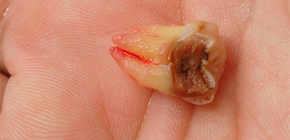
Unfortunately, sometimes after the removal of a wisdom tooth on the lower jaw, there are very unpleasant consequences: it can be severe pain, prolonged bleeding and even permanent loss of sensitivity of the face, chin and tongue. In many ways, the risks of such complications are due to the special structure of the lower 8 teeth, as well as the characteristics of their location in the jaw. So is it worth it then, in general, to remove them and what you need to be ready after the work of a dentist-surgeon - let's understand ...
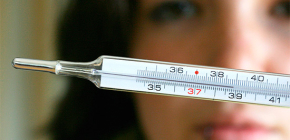
Often, after tooth extraction, the temperature on the same day can rise to very high values, especially in the evening or at night. Sometimes this is a completely natural reaction of the body to surgery and the ensuing inflammation, but in some cases, an increased temperature may indicate the development of dangerous complications.How in such a situation to recognize the problem in time and how it can be solved - we will discuss this further in more detail.

A cheek that is swollen after a tooth is removed is a fairly frequent occurrence that usually occurs some time after a visit to the dental surgeon. Often a strong swelling of the cheek causes a real panic in impressionable people, especially when accompanied by other unpleasant symptoms. In such situations, the question usually arises: how dangerous is it and what should be done to solve the problem? Next, we will try to figure out in which cases the problem can be solved on our own, without leaving the house, and when it is really worthwhile to immediately run to a specialist for help ...
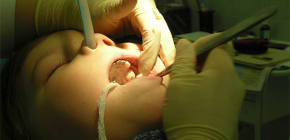
Anesthesia in dentistry for the general population began to be applied relatively recently, allowing, after immersion in deep sleep, painlessly to carry out any dental manipulation - including the extraction of a tooth. However, do not flatter yourself,since the advantages of general anesthesia also hide serious shortcomings, which are useful to know in advance, so that you do not worry about lost health or nerves ...
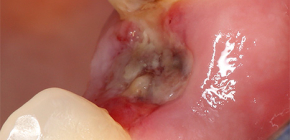
1-3 days after tooth extraction, problems sometimes arise: the temperature rises, there is an unpleasant smell from the mouth and severe pain in the gums and the hole at the place of the extracted tooth, which is aggravated by chewing. It is the inflammation of the walls of the hole or, otherwise, the alveolitis provokes these symptoms, sometimes creating a feeling in a person that the diseased tooth was not removed at all, but continues to trouble him even more, although the dentist-surgeon has long since extracted the roots. We will continue to talk about the causes of the appearance of alveolitis, as well as about the methods of its treatment and prevention ...
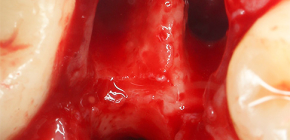
After a tooth is removed, blood sometimes does not stop for a long time - it sometimes comes to the point that bleeding from the hole may not stop for days. However, knowing a few simple ways, you can often stop the blood without leaving the house. However, there are also such situationswhen no home remedies can help, because bleeding can be associated with certain problems in the body, which also need to be known in advance. Next, we will talk about the true causes of situations where blood from the hole cannot stop for hours, learn three ways to quickly stop bleeding at home, and also get into some of the secrets of the professional "kitchen" of dental surgeons, whose methods of work are also very interesting.
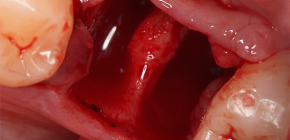
Tooth extraction is an extreme measure, which is resorted to only when, for certain reasons, it can no longer be saved. When a dental surgeon removes a bad tooth, the patient may think that all the suffering and past fears are left behind, and there is nothing more to worry about. However, this is a profound mistake. As soon as the euphoria after the successfully experienced operation goes away, there comes an understanding that in the mouth, nevertheless, a bloody wound, which often bleeds for a long time, is not in a hurry to heal, sometimes fester and hurt a lot. How long will the injured gum and hole heal, what factors influence it and how can the process be accelerated, protecting itself from possible serious complications? Let's understand ...
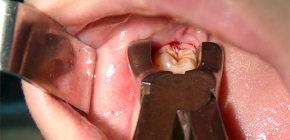
Tooth extraction for many people is a frightening procedure. The patient is afraid of the consequences that may arise after such a surgical procedure, in particular - prolonged bleeding, swelling of the gums, suppuration and other complications. And there are indeed grounds for such concerns, however, with well-performed manipulations, the risks of complications after tooth extraction are minimal, especially in cases where a person has the skills to care for the hole after the procedure. The ability to recognize this or that complication in time allows us to effectively prevent its negative consequences. It is these moments that we will further discuss with you in more detail, so that the healing of the wound will be as quick and comfortable as possible.
